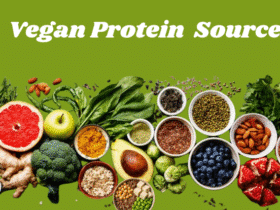Intoroduction
In the vast realm of dietary choices, the debate between vegetarian and non-vegetarian lifestyles has been a longstanding one. While non-vegetarian diets are celebrated for their rich protein content and savory flavors, it’s crucial to delve into the less-discussed aspect – the potential side effects of consuming non-vegetarian food. This article aims to shed light on the various impacts on health and the environment that might arise from a diet heavily reliant on animal products.
Nutritional Concerns
One of the primary reasons individuals choose a non-vegetarian diet is the belief that it provides essential nutrients, particularly protein, in abundance. While it’s true that animal products are excellent sources of protein, an excessive intake can lead to various health issues. For instance, red and processed meats have been linked to an increased risk of heart diseases, high blood pressure, and certain types of cancer. Moderation is key, and a well-balanced diet incorporating a variety of protein sources, both animal and plant-based, is recommended.
Cholesterol and Cardiovascular Health
Non-vegetarian diets, especially those high in red meat and saturated fats, can contribute to elevated cholesterol levels. High cholesterol is a known risk factor for cardiovascular diseases, including heart attacks and strokes. Consuming leaner cuts of meat and opting for healthier cooking methods can mitigate this risk. Additionally, incorporating plant-based foods that promote heart health, such as nuts, seeds, and whole grains, can be beneficial.
Digestive Challenges
The digestion of meat is a complex process that requires significant energy and time from the digestive system. Some individuals may experience digestive challenges, such as bloating, constipation, or indigestion, when consuming a diet rich in non-vegetarian foods. Including fiber-rich plant foods can aid in digestion and promote a healthier gut environment.
Environmental Impact
Beyond personal health, the environmental repercussions of a non-vegetarian diet are substantial. The livestock industry is a major contributor to deforestation, greenhouse gas emissions, and water pollution. Large-scale animal farming requires vast amounts of land, water, and feed, contributing to the depletion of natural resources. Shifting towards a more plant-based diet or reducing meat consumption can play a role in mitigating these environmental challenges.
Ethical Considerations
In addition to health and environmental concerns, ethical considerations surrounding the treatment of animals in the meat industry have gained prominence. Factory farming practices, where animals are often raised in crowded and unsanitary conditions, have sparked debates about animal welfare. Many argue that opting for a vegetarian or plant-based diet aligns with ethical principles, promoting compassion towards animals and advocating for more humane farming practices.
Potential for Foodborne Illnesses

The handling and processing of meat pose a risk of foodborne illnesses. Contamination can occur at various stages, from the farm to the processing plant and even in the kitchen. Bacteria such as Salmonella and E. coli are common culprits, causing illnesses ranging from mild gastrointestinal discomfort to severe complications. Proper cooking techniques, hygiene practices, and food safety measures are crucial in minimizing the risk of foodborne illnesses associated with non-vegetarian food consumption.
Impact on Weight Management
Non-vegetarian diets can be calorically dense, and excessive calorie intake can contribute to weight gain. While lean meats can be part of a healthy diet, it’s essential to balance caloric intake with energy expenditure. Additionally, the cooking methods and accompanying ingredients play a role – frying and heavy sauces can significantly increase the overall calorie content of a meal. Individuals aiming for weight management should be mindful of portion sizes and opt for healthier cooking methods.
The Role of Hormones and Antibiotics
The use of hormones and antibiotics in animal farming has raised concerns about their potential impact on human health. While regulations exist to monitor and limit the use of these substances, the residues can still make their way into the meat we consume. Prolonged exposure to such residues may contribute to antibiotic resistance and disrupt hormonal balance in the human body. Choosing organic and responsibly sourced meat products can help minimize exposure to these potentially harmful substances.
Cultural and Regional Variations
It’s essential to acknowledge that dietary choices are often influenced by cultural and regional factors. Non-vegetarian diets have deep-rooted traditions in many cultures, providing unique flavors and culinary experiences. While discussing the potential side effects, it’s crucial to respect the diversity of dietary preferences and find a balance that aligns with individual health goals and cultural practices.
Also Check :- Vezlay Soya Chaap
Impact on Weight Management:
Here are short notes on the impact of non-vegetarian diets on weight management and potential side effects of non veg:
Protein Benefits:
- Non-vegetarian diets are rich in protein, which helps in muscle building and satiety.
- Adequate protein intake supports weight management by promoting a feeling of fullness, reducing overall calorie consumption.
High in Saturated Fats:
- Non-vegetarian diets, especially red meat and processed meats, can be high in saturated fats.
- Excessive saturated fat intake may contribute to weight gain and increase the risk of cardiovascular diseases.
Calorie Density:
- Some non-vegetarian foods, like fried and processed meats, can be calorie-dense.
- Consuming high-calorie foods without considering portion sizes may lead to weight gain.
Nutrient Density:
- Non-vegetarian diets can provide essential nutrients like iron, zinc, and B-vitamins important for overall health.
- Balancing nutrient-dense sources is crucial to avoid deficiencies and support weight management.
Processed Meats and Additives:
- Processed meats often contain additives, preservatives, and excess sodium.
- Regular consumption may contribute to water retention and potential negative impacts on weight.
Digestive Health:
- Some individuals may experience digestive issues with certain meats.
- Poor digestion can affect nutrient absorption and may indirectly impact weight management.
Potential Health Risks:
- High consumption of red and processed meats is associated with an increased risk of chronic diseases.
- Conditions like obesity, diabetes, and cardiovascular issues can impact weight management.
Balance and Moderation:
- The key to healthy weight management lies in a balanced diet with moderation.
- Including lean sources of protein, along with a variety of fruits, vegetables, and whole grains, promotes overall well-being.
In summary, non-vegetarian diets can be part of a balanced approach to weight management, but it’s essential to be mindful of portion sizes, choose lean sources of protein, and prioritize nutrient-dense foods to minimize potential side effects.
Conclusion
In the grand tapestry of dietary choices, the decision to include or exclude non-vegetarian foods is a personal one, shaped by a myriad of factors. Understanding the potential side effects of consuming non-vegetarian food allows individuals to make informed choices that align with their health, ethical, and environmental values. A balanced approach, incorporating a variety of nutrient-dense foods, whether plant or animal-based, is key to maintaining overall well-being. As we navigate the complex landscape of nutrition, let’s strive for a harmonious coexistence of diverse dietary preferences while prioritizing health, sustainability, and compassion.












Leave a Reply